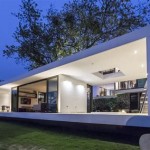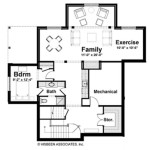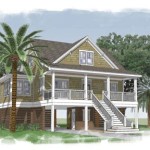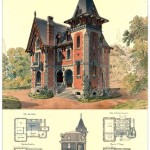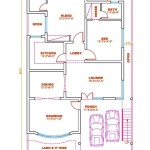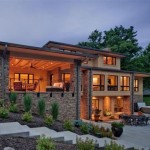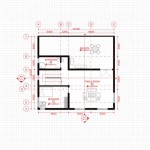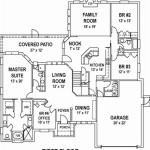Tiny House on Wheels Building Plans: A Guide to Downsized Living
The allure of tiny house living is undeniable: a simplified lifestyle, reduced financial burdens, and the freedom to travel. While the concept is alluring, the reality of building a tiny house on wheels requires meticulous planning and considerable skill. This article delves into the essential aspects of tiny house building plans, exploring the design considerations, construction processes, and legal requirements that will help you embark on your tiny house journey.
Design Considerations: Layout, Functionality, and Aesthetics
The first step in building a tiny house on wheels is developing comprehensive building plans. This involves meticulously considering every aspect of the design, from the overall footprint to the intricate details of interior layout, and ensuring that the design aligns with your unique needs and preferences. Here are some key elements to consider:
- Layout: Efficiently maximize space. Prioritize multi-functional furniture, strategic storage solutions, and thoughtful flow patterns to create a comfortable and functional living environment.
- Functionality: Determine the essential features for your desired lifestyle. Consider aspects like kitchen appliances, bathroom amenities, and sleeping arrangements, balancing practicality with aesthetic appeal.
- Aesthetics: Choose a design aesthetic that reflects your taste and complements your desired environment. Explore various architectural styles, finishes, windows, and doors to create a visually appealing and inviting tiny house.
Beyond the basic design elements, it is crucial to consider the regulatory requirements for tiny houses on wheels. Zoning restrictions, building codes, and transportation regulations vary depending on your location. Consulting local authorities and obtaining necessary permits before starting construction ensures compliance and avoids potential legal issues.
Construction Process: From Foundation to Finish
The construction process of a tiny house on wheels demands meticulous planning and careful execution. It involves a series of phases, starting with the foundation and culminating in a complete and functional tiny home. Here’s a breakdown of the key stages:
- Foundation: The foundation serves as the base for your tiny house. It is typically built on a trailer frame, which can be a standard utility trailer or a custom-built frame that meets your specific needs. Ensure the frame is strong enough to support the weight of the house, and consider the towing capacity of your chosen vehicle.
- Framing: Construction begins with constructing the walls, roof, and floor framing. This involves selecting suitable lumber, cutting it according to the plans, and assembling it securely to create the structural base of the house.
- Insulation and Sheathing: After framing, apply insulation to the walls, roof, and floor to provide thermal protection and improve energy efficiency. Sheathing is then installed over the insulation to create a smooth surface for siding and interior finishes.
- Exterior Finishes: The exterior of your tiny house is crucial for weatherproofing and aesthetic appeal. Choose a durable siding material that suits your budget and style preferences. This could include wood, vinyl, metal, or composite materials. Consider adding finishing touches such as windows, doors, and trim.
- Interior Finishes: The interior of your tiny home is where you'll live. Select materials for walls, flooring, and ceilings that are both practical and visually appealing. Consider using sustainable and eco-friendly materials like bamboo, cork, or reclaimed wood. Install cabinetry, countertops, and fixtures to complete the interior layout.
- Plumbing, Electrical, and HVAC: These essential systems are crucial for a functional and comfortable tiny house. Install plumbing for water supply and wastewater disposal, electrical wiring for lighting and appliances, and an HVAC system for heating and cooling.
While the construction process can seem daunting, breaking it down into smaller manageable steps can make it feel more achievable. It's advisable to consult with experienced builders or professionals for guidance and assistance, especially for complex tasks like electrical and plumbing installations.
Essential Resources and Support
Building a tiny house on wheels requires access to various resources and support. Here are some crucial elements that will enhance your success:
- Building Plans: Reliable and detailed building plans are essential for a successful construction project. You can find pre-designed plans online, purchase plans from professional designers, or hire an architect to create custom plans tailored to your specific needs.
- Tools and Equipment: Investing in the right tools and equipment is crucial for efficient and safe construction. This could include saws, drills, measuring tools, and safety gear. Consider renting or borrowing specialized equipment if you're on a budget.
- Building Materials: Select high-quality building materials that are durable, energy-efficient, and aesthetically pleasing. Research different options, compare prices, and consider the sustainability and environmental impact of the materials.
- Community Support: Joining a tiny house community or online forums can provide valuable insights, guidance, and support from fellow tiny house enthusiasts. You can learn from their experiences, exchange ideas, and find potential suppliers and contractors.
Remember, building a tiny house on wheels is a rewarding but challenging project. Thorough planning, careful execution, and a willingness to learn and adapt are key to successfully creating your own downsized home on wheels.

Escape Traveler A Tiny House On Wheels That Comfortably Sleeps 6 Floor Plans Trailer

Tiny House Floor Plans 32 Long Home On Wheels Design

Tiny House Floor Plans 32 Home On Wheels Design

224 Sq Ft Tiny House On Wheels By Living Homes Small Diy Floor Plans

Tiny House Plans The Project

Free Tumbleweed Diy Tiny House Plans Houses

Tiny House Plans On Wheels Main Floor Bedroom Office Lofts

27 Adorable Free Tiny House Floor Plans Craft Mart

Escape Traveler A Tiny House On Wheels That Comfortably Sleeps 6 Floor Plans Trailer

Floor Plans For Your Tiny House On Wheels Photos
Related Posts

